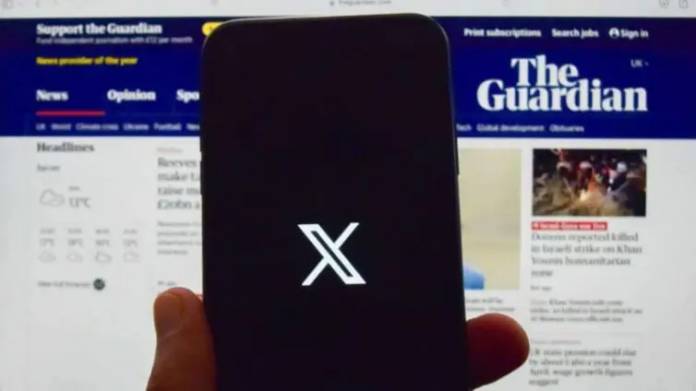The Guardian, a prominent British newspaper group, has decided to stop posting content on X, the social media platform formerly known as Twitter. This move comes after the newspaper expressed growing concerns about the platform's increasingly toxic environment under the ownership of Elon Musk. The Guardian's decision to withdraw comes in the wake of the 2024 U.S. presidential election, which further highlighted the role Musk has played in shaping political discourse on X. Musk, who has been an outspoken supporter of former President Donald Trump, has used the platform to influence public conversation, raising alarm over its potential to sway political opinions.
Although The Guardian will no longer contribute posts directly to X, it clarified that its content will still be shareable on the platform, and the newspaper may continue to embed X posts in its coverage of global events. Additionally, The Guardian's reporters will still be able to use X for news-gathering purposes. However, the decision to stop posting is driven by the increasing prevalence of disturbing content on the platform, including far-right conspiracy theories and racist rhetoric. The Guardian has expressed that the negative aspects of the platform have now overshadowed any benefits that came with being a part of X, and it believes that remaining on the platform is no longer justifiable in light of these growing concerns.
The announcement from The Guardian has already sparked strong reactions from users on X, particularly those who have paid for prominent replies, with many accusing the newspaper of engaging in "woke propaganda" and "virtue signaling." This response underscores the deep political divide that has emerged on the platform, with some users criticizing The Guardian's decision as an expression of its liberal bias. Musk and The Guardian, known for their differing political views, have clashed over the years, so it is not surprising that the newspaper is distancing itself from Musk’s increasingly conservative influence on the platform. This move, however, is also part of The Guardian’s broader positioning as a staunch opponent to Trump’s politics and the right-wing forces gaining influence on X.
The Guardian’s exit from X also serves to highlight its ongoing strategy to distance itself from billionaires who have a direct influence on media ownership. By taking this step, the newspaper positions itself as an independent voice in the media landscape, particularly in the face of Musk's growing influence over X. The move coincided with a significant surge in donations from readers, with the day after the U.S. election seeing The Guardian raise a record-breaking $1.8 million. This influx of support reflects a broader trend in the media industry, where readers are increasingly funding adversarial journalism, particularly in the aftermath of the election, as they look for alternatives to corporate-backed media. The Guardian’s call for donations comes as part of its effort to sustain its independence and continue offering critical reporting.
This decision is likely to have wider implications for X, as it raises questions about whether other media organizations will follow suit. As the platform faces growing criticism for its content moderation and its alignment with conservative political figures, rivals such as Meta’s Threads and Jack Dorsey’s Bluesky are gaining popularity. Bluesky, in particular, has seen rapid growth, with its user base expanding by four million in just two months. While Bluesky and Threads are still much smaller than X, the shift in users toward these platforms suggests that many are seeking alternatives to Musk's increasingly politicized version of Twitter. The Guardian’s departure is yet another signal of the challenges X faces in maintaining its position as a dominant social media platform amid increasing dissatisfaction from both users and media outlets.


